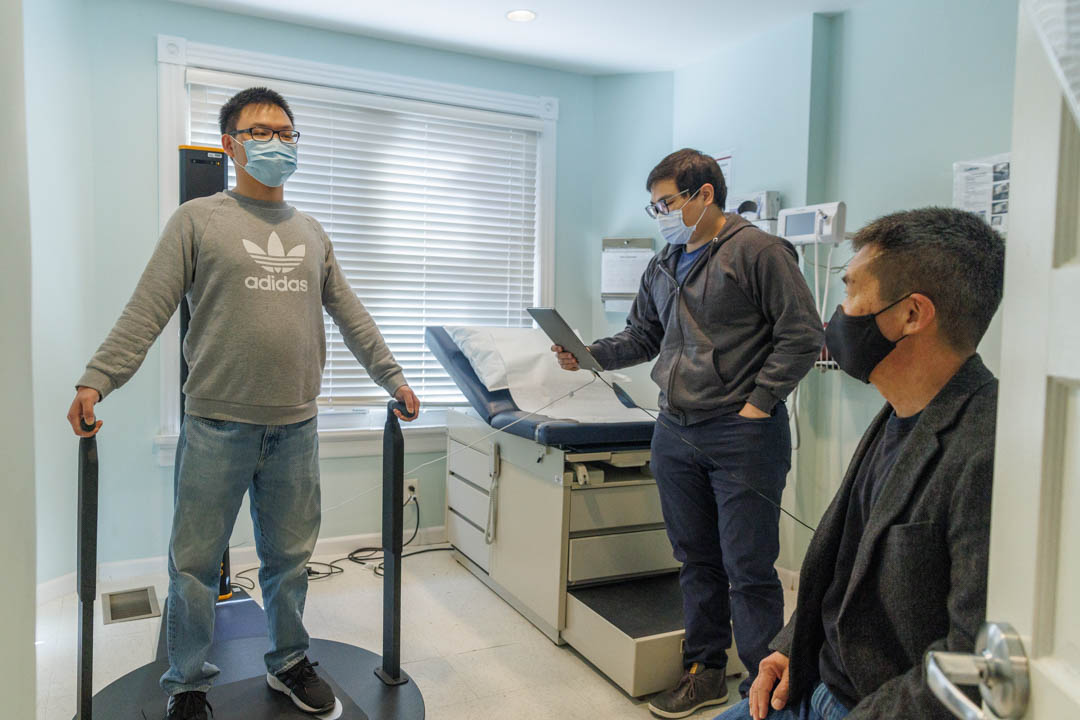By Kristen Mitchell
Faculty from the George Washington University School of Engineering and Applied Science (SEAS) will lead a new multi-institution project called "Research for All" that aims to expand and improve access to and productivity of the research experiences for undergraduate engineering students. This effort focuses on changing the undergraduate research experience from procedural to entrepreneurial, allowing students to better appreciate the discovery and wonder of academic research as well as the productive value of their contributions to research.
Through this project, researchers will develop a suite of tools that will be piloted and evaluated in a range of institutional settings and shared with the engineering education community to maximize their impact.
Participating in undergraduate research is an opportunity to learn valuable technical skills and learn how to ask questions, however only certain students participate in these experiences and the experiences can vary depending on how the students are integrated into the project, said Jason Zara, SEAS professor, associate dean for undergraduate studies and principal investigator on this project. "Research For All" aims to develop tools to integrate research problems into required coursework, develop modules to upskill students and mentors, and develop a platform to connect students with opportunities based on validated skills and interests.
"There are many research opportunities available to our undergraduate students, but the process to receive the opportunity can often be daunting to certain students. In this project, we are working to lower the barriers to entry and increase participation in undergraduate research," Zara said. “In addition, we are developing tools to allow students and mentors to hone their research and research guidance skills to improve the outcomes of undergraduate research experiences."
This three-year project is a collaboration among GW, George Fox University, North Carolina Agricultural and Technical State University, Olin College of Engineering, University of Washington–Tacoma, The University of North Carolina–Chapel Hill, Campbell University and Valparaiso University. These institutions vary widely in size, areas of specialty and research activities—giving the team an opportunity to examine the best ways to approach supporting an improved undergraduate research experience in a range of higher education environments.
The more than $2 million project is supported by The Kern Family Foundation, which originated the Kern Entrepreneurial Engineering Network (KEEN), a partnership of more than 50 colleges and universities in the United States focused on fostering an entrepreneurial mindset in undergraduate engineering students so that they can create personal, economic and societal value through their work. GW has been a KEEN partner since 2018.
The project explores three distinct paths for improving the undergraduate research experience. The first, “URCurious,” will explore incorporating undergraduate research experience into engineering courses. GW will spearhead this task. Faculty from each department in SEAS will identify one building block course where real research challenges can be incorporated into the coursework. This will be launched in the next academic year. This would ensure that all students will experience at least one real-world research project during their engineering studies, Zara said.
Ekundayo Shittu, associate professor in the SEAS Department of Engineering Management and Systems Engineering and a co-principal investigator on this project, said integrating research into teaching offers risk-free opportunities for students to explore career alternatives, gain transferable skills and make contributions to knowledge in ways that are beneficial to society.
"Our continued commitment to integrating research into teaching will be significantly bolstered by the support we have now received. We, along with our KEEN partners, will be able to engage more faculty and students to create value for others," Shittu said. "Specifically, this will allow us to remove the barriers for entrepreneurial mindset in our students, fuel their curiosity and allow them to flourish in the boundless possibilities that faculty research offers."
The second task, "URSkilled," is the development of training modules for both students and research mentors that aim to support research and mentorship skills for each party respectively. Both students and mentors will be able to earn credentials for completing these modules, serving as a motivational tool and connection to the third task, “URConnected,” which will connect students with mentors who need research assistance.
Project collaborators will build a matching algorithm designed to remove bias from the selection process, enabling mentors to input the skills they’re looking for and be matched with a student who has those skills. The goal is to increase access for students, save time for research mentors and create an environment through which students, mentors and research partners can collaboratively propose and explore projects.
"This could help us identify talent and interest in several ways and may help identify students who have both the interest in and skills necessary for particular research projects, better matching students to opportunities," Zara said.
By the end of year three, all collaborating institutions are committed to implementing tools developed through each of the three areas of focus in a way that makes sense for the specific university.
According to Zara, research experience is informative for students because it gives them the opportunity to make connections between what they’re learning in the classroom and how they would apply that knowledge in their professional careers. Research also gives students experience addressing real world challenges, he explained. Armed with stories about work in the lab, students will be prepared to talk about how they solve problems, overcome adversity and ask thought-provoking questions when it comes time to interview for jobs.
"If you're lucky, your research experience helps you find your passion," Zara said.




